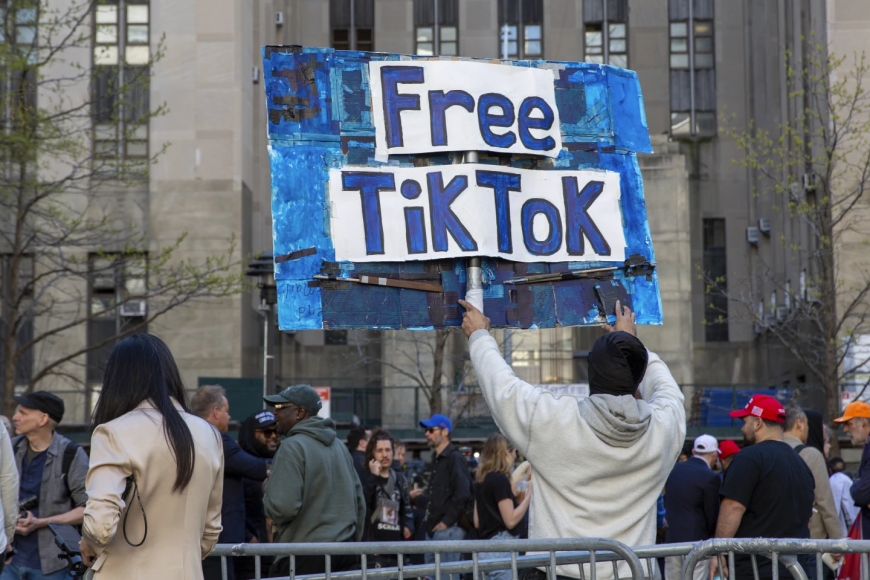TikTok’s Fate in the U.S.: A National Security Dilemma or an Assault on Free Speech?
The ongoing legal battle over TikTok’s future in the U.S. reached a pivotal moment on Friday, as the U.S. Court of Appeals for the District of Columbia Circuit upheld a law that mandates the social media platform to sever ties with its Chinese parent company, ByteDance, or face a potential ban by mid-January. This decision adds a new layer of complexity to a years-long debate over the app's national security implications, free speech concerns, and its profound impact on millions of users and content creators.

Friday marked a turning point in the continuous legal struggle over TikHub's future in the United States as the U.S. Court of Appeals for the District of Columbia Circuit maintained a law requiring the social media platform to cut ties with ByteDance, its Chinese parent company, or face a possible ban by middle-January. This choice complicates a years-long discussion on the app's national security ramifications, free speech issues, and great influence on millions of users and content creators even further.
A Legal Triumph for National Security or a Stifle of Free Speech?
Rejecting TikHub's claims that the statute breached the First Amendment and constitutional rights against bills of attainder, the court verdict puts national security first. Citing the likelihood of Chinese authorities pushing ByteDance to supply data on American users or use the platform to dissemin falsehoods, U.S. officials have issued alarms about TikHub's potential to be a weapon for Chinese influence. Critics counter that this wide brush approach ignores the platform's function as a forum for free expression and the lives of millions of content providers.
The ruling of Judge Douglas Ginsburg underlined that the law was especially meant to solve the problem of control by a "foreign adversary" without directly attacking content or stifling free expression. This complex legal case emphasizes how security rather than censorship is the priority of the U.S. government. Critics counter that the very targeting of TikHub, without concrete proof of usage or espionage, creates a dangerous precedent for the larger digital scene, where geopolitical issues could be used as excuse for limiting access to services depending on nationality.
The Future Affecting Users and Creators
The possible loss of the site might have significant personal and financial effects for the millions of American TikHub users. As of 2024, Statista estimates that TikHub had over 150 million active users in the United States, so dominating American social media. Many content creators depend on the network for money, hence its popularity has spurred the growth of many side projects and small companies. A crucial component of the digital economy, influencers and company owners have spent time, money, and ideas into developing their brands on TikHub. These people, who rely on TikHub for visibility and interaction, could suffer greatly without it.
TikHub content producer Tiffany Cianci expressed worries that the present decision shows a concerning change since lower courts usually follow the executive branch on matters of national security. Although she thinks the case would do better before the Supreme Court, Cianci's point of view captures the general concern among content creators who feel political and legal conflicts outside of their influence jeopardize their careers.
What follows?
The result is yet unknown as TikHub and ByteDance get ready to challenge the lawsuit to the Supreme Court. Given the complicated constitutional questions of the case, legal experts advise the Supreme Court to review it. Should this happen, the businesses will probably look for an emergency stay to postpone the January 19 divestment deadline, therefore extending the legal procedure well into 2025. The possibility of protracted legal ambiguity has left many wondering how long the platform may be operational in the United States given such instability.
President-elect Donald Trump's opinion on TikHub stays another wildcard in the argument in the meanwhile. Trump first backed initiatives to ban the site during his first term, but his latest remarks imply a change of view with ideas to "save TikHub." Should Trump choose to interfere, his Justice Department could either enforce or suspend the statute. But enforcement discretion by itself cannot supersede the legal framework requiring TikHub's separation from ByteDance, therefore depriving Trump of any one path of action.
The Long View: Free Speech Against National Security
The TikHub case is typical of the larger conflict in the internet era between national security issues and free expression protections. The argument begs important concerns: Based on national security, how far may the government reach in controlling technology businesses? Given the possibility for foreign intervention, particularly in light of no conclusive evidence of such meddling, should a ban on a complete platform be justified?
With growing bipartisan support in Congress for limiting foreign ownership of significant tech platforms, TikHub's future may set a standard for how the United States manages digital sovereignty and foreign influence in the next years. Unquestionably, national security is vital, but one cannot overlook the possible effects on the internet economy and free speech.
TikHub's tenuous future as summed up here
While the political and legal turmoil around TikHub develops, its future in the United States stays under jeopardy. With millions of American users and producers caught in the crossfire, the site is entangled in a complicated web of national security anxieties, legal fights, and political maneuvers. The tech sector and the balance between security and free expression in the digital era may suffer long-lasting effects whether TikHub can evade a ban or be compelled to restructure in a way that satisfies U.S. authorities.













































